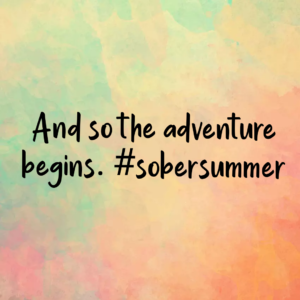The Sober Curious Movement
Maybe you’re over spending days recovering from one night out partying. Perhaps you’re looking around, and seeing your peers establishing careers, families, and first houses while you feel behind the curve. You could be a person that hits the gym all week, maintains an otherwise healthy lifestyle, and the drugs or alcohol you’re taking in don’t mesh with that larger lifestyle. The sober curious movement might be for you.

Arguably, its origins begin in a generation that grew up watching Dr. Drew and Bob Forrest get real with a wide range of celebrities. Its a generation was raised on healthier food, a more physically active lifestyle, and a lingo for rehab and addiction that shifted out of anonymity or embarrassment. The Sober Curious Movement is about questioning the role of alcohol and other drugs in our lives and our culture. It’s a shift from “just say ‘No’” to “just ask ‘why?’”
Why are drugs and alcohol so pervasive in our culture? Why is fun and relaxation marketed so closely with booze and binge drinking? Why do I wake up, work out, and hit the road to work, but also get trashed on the weekends and need substances to dial down at night? Why do my feelings seem intolerable in the quiet of the end of a day? Why?
Being sober curious allows for a more open conversation with yourself, and others. People can begin to tune in, instead of tuning out. The pursuit of genuine experience, and full awareness of the moment becomes the focal point far and above the blitzed state of another pub crawl. While boredom and FOMO plague some people in early recovery, the sober curious movement is an invitation to live fully.
In St. Louis, sober curious people can find community in a wide variety of ways. Sans Bar St Louis partners with local venues to host alcohol-free pop-up events. Pop’s Blue Moon has sober night every Saturday night, boasting of craft non-alcoholic cocktails and live music. Late-night venues throughout the region are following that lead by putting high quality ingredient mocktails on their own drink lists. These options bring sober support outside of a church basement, and into some of the best locales that the city has to offer.
If you’ve already been down this road, and #DryJanuary quickly ended in epic failure, it might be time to reach out for help. For people struggling with addiction, there isn’t enough curiosity and willpower in the world to get them safely into early recovery. It’s very common for people in the middle of addiction to want, and even openly discuss, sobriety. When a person’s body moves into chemical dependency, professional support is needed to move out of dependency.
Chemical dependency is the brain’s brilliant way of adapting to its circumstances in order to survive. The brain wants to get on board with the lifestyle that its in, and a chemical shift occurs. The brain begins to chemically rely on alcohol or other drugs, believing that the body that its in must need these chemicals to survive. Food, relationships, self-care, and basic safety all shift down the list of priorities, and substances get the number one ranking on the “List of Things Needed to Survive”. These people experience fierce withdrawal symptoms with any attempt to reduce or quit their use. Withdrawal symptoms can look similar to the flu, and are often described as “the worst flu I’ve ever had”. For many chemically dependent people, abruptly quitting on their own can lead to seizures and be life-threatening.
Wherever you are on the spectrum from sober curious to chemically dependent, Harris House is here to help. One phone call can connect you to a professional waiting to help, ready to listen to your personal experience and connect you to a wide range of services.







